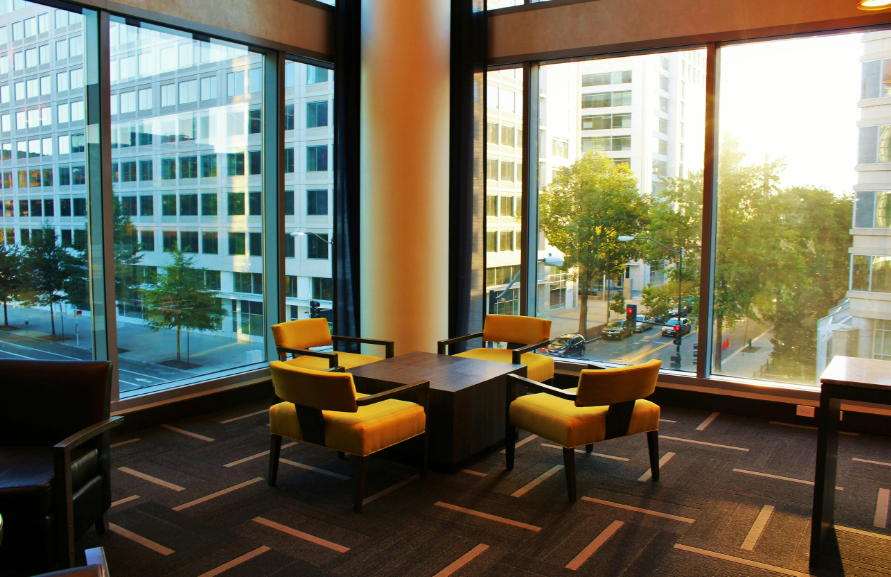In recent years, London’s commercial property market has been undergoing a dramatic transformation. As businesses navigate the changing landscape of work post-pandemic, one trend is becoming increasingly evident – the growing popularity of smaller office spaces. In a city once dominated by vast corporate headquarters, the demand for smaller, flexible office spaces has surged, driven by new working models and the changing needs of businesses.
In this blog, we will explore why smaller offices in London are gaining popularity, the factors behind this shift, and what it means for businesses, investors, and the property market in 2025.
The Changing Landscape of Work
The way businesses operate has changed significantly over the last few years. The pandemic accelerated a shift towards remote working, with many employees working from home for the first time. While hybrid working models have gained traction, many businesses have realised that they no longer need vast, centralised offices to house their entire workforce. Instead, companies are opting for smaller, more flexible office spaces that cater to their new working arrangements.
As businesses reconsider their office requirements, there is an increasing demand for commercial properties that are more suited to smaller teams, short-term leases, and collaborative working environments. This has led to a significant rise in the popularity of smaller office spaces across London, particularly in areas with strong transport links and proximity to residential neighbourhoods.
Why Smaller Offices Are Gaining Popularity

There are several key reasons why smaller offices are becoming more sought after in London:
1. Flexible Working and Hybrid Models
The rise of flexible and hybrid working models has revolutionised the traditional office space requirements. With many employees only working in the office a few days a week, businesses no longer need to lease large spaces to accommodate everyone. Instead, smaller offices, often with flexible layouts and shared workspaces, are ideal for businesses that need a base in the city but don’t require the traditional large office footprint.
Smaller offices allow businesses to provide a collaborative working environment while reducing overhead costs. These spaces often feature hot-desking arrangements, meeting rooms, and breakout areas, allowing employees to work more efficiently when they are in the office, without the need for assigned desks or permanent workstations.
2. Cost-Effectiveness
As businesses strive to manage costs, leasing a large office in central London can be prohibitively expensive. Smaller offices, on the other hand, offer a more cost-effective solution. For start-ups, small businesses, and those with fewer employees, smaller office spaces can provide all the benefits of having a professional presence in London at a fraction of the cost of a larger property.
Moreover, businesses can often find smaller office spaces in well-connected areas of London, which allows them to retain a city address without the premium price tag associated with locations like the West End or Canary Wharf. These cost savings can be reinvested into other areas of the business, such as technology, employee benefits, or marketing.
3. Increased Demand for Flexibility
The need for flexibility has become a major factor driving the demand for smaller office spaces. With the rapid pace of change in the modern business world, companies want more flexibility in their office arrangements. Small office spaces often come with shorter lease terms, which gives businesses the freedom to scale up or down as their needs change.
In addition, many smaller offices are offered with inclusive services, such as high-speed internet, cleaning, and utilities. This can provide businesses with the simplicity of a one-stop solution, without the hassle of managing separate contracts and services.
4. Demand from Start-Ups and SMEs
Small and medium-sized enterprises (SMEs) and start-ups have been major drivers of the demand for smaller office spaces in London. These businesses are often looking for cost-effective and flexible spaces that allow them to grow without the burden of long-term leases or large office footprints.
Start-ups in particular are often looking for a collaborative and creative environment. Smaller offices can offer shared workspaces, meeting rooms, and a vibrant community that encourages networking and innovation. In many cases, these offices are designed to foster collaboration and offer a supportive ecosystem for entrepreneurs and small businesses to thrive.
5. The Rise of Co-Working Spaces
Co-working spaces have surged in popularity over the last few years, particularly as remote working became more prevalent. These spaces provide businesses with access to a professional environment without the need for a long-term commitment or the expense of renting a large office. Co-working spaces are typically equipped with shared desks, private offices, meeting rooms, and communal areas, providing businesses with a flexible and collaborative workspace.
As the demand for flexible working solutions grows, more co-working providers are opening locations across London, catering to a wide range of industries. This has helped meet the increasing demand for smaller office spaces, giving businesses the option to scale as needed and access high-quality office facilities without the burden of a traditional lease.
Smaller Offices in Central and Outer London Locations

While smaller offices have traditionally been associated with more affordable areas outside of central London, there is an increasing demand for them in prime locations as well. Businesses are no longer confined to traditional office districts like the City or West End. Instead, they are seeking smaller, more flexible spaces in locations that offer a better work-life balance, often closer to residential areas.
Areas like Shoreditch, Hackney, and Brixton have seen an influx of small businesses and start-ups looking for flexible office spaces. These areas offer vibrant communities, good transport links, and a thriving local economy, making them attractive to businesses looking to establish a presence without paying the high rent of central London.
For businesses that prefer to stay within central London, there are many newly refurbished smaller office spaces available in key locations. Whether it’s in Soho, Victoria, or Holborn, smaller offices offer the flexibility businesses need while still being in close proximity to the heart of the city’s financial and commercial activity.
The Role of Estate Agents in the Smaller Office Market
As the demand for smaller office spaces grows, estate agents are playing an increasingly important role in helping businesses find the right property. With an in-depth understanding of the commercial property market, estate agents are able to provide valuable advice on available commercial properties to rent in London. They can guide businesses through the process of finding an office space that suits their needs, helping them navigate lease terms, location, and space requirements.
For businesses looking to secure smaller office spaces in London, working with a trusted estate agent can make a significant difference. Estate agents with expertise in commercial properties can help negotiate the best terms, ensure the office space meets the business’s needs, and provide market insights that can help businesses make informed decisions.
The Future of Smaller Offices in London

Looking ahead, the demand for smaller office spaces in London is set to continue rising. As businesses continue to embrace hybrid working models and the demand for flexible workplace grows, smaller office spaces will play an increasingly important role in the commercial property market. With businesses prioritising flexibility, cost-effectiveness, and collaborative environments, it is clear that smaller offices will be a key feature of London’s office landscape in the years to come.
For businesses looking to lease a smaller office in London, now is an excellent time to explore the variety of options available. Whether it’s a co-working space, a small office in a growing area, or a newly refurbished building, there are many opportunities to find the perfect space for your business’s needs.
Conclusion
London’s office market is evolving, with a growing shift towards smaller, flexible office spaces. Driven by the changing nature of work, the rise of hybrid working models, and the increasing need for cost-effective solutions, the demand for smaller offices is stronger than ever. As the property market adapts to these changes, businesses are finding that smaller office spaces provide the flexibility, affordability, and modern amenities they need to thrive.
If you are looking for commercial properties to rent in London, working with experienced estate agents can provide you with valuable insights into the changing market and help you secure a space that suits your business’s needs. Whether you are a start-up, an SME, or an established company, smaller office spaces in London are a viable option that provides the ideal balance of flexibility, location, and cost-effectiveness.
I’m Laura Wilson, a passionate blogger and content creator with a deep interest in business, finance, and entrepreneurship. I’ve had the opportunity to write for several premium blogs, sharing insights & practical advice for individuals & small businesses. I’m the founder and publisher of ukbusinessmag.co.uk, where I focus on creating valuable, easy-to-understand content to help UK startups & SMEs grow.



